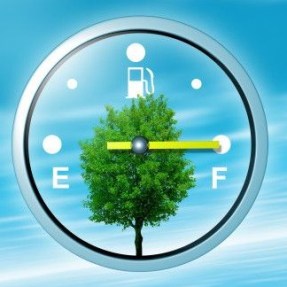
The problem is, almost all of these players hit the same ceiling: they can’t figure out a way to inexpensively scale with the technology they have. But biofuel startup LS9 may have just changed that.
[aditude-amp id="flyingcarpet" targeting='{"env":"staging","page_type":"article","post_id":202155,"post_type":"story","post_chan":"none","tags":null,"ai":false,"category":"none","all_categories":"business,enterprise,","session":"B"}']The company’s scientists have published a paper, academically titled “Microbial Biosynthesis of Alkanes,” claiming that they can now implant genes into E. coli that allow the bacteria to directly churn out alkanes — otherwise known as the hydrocarbons in car and jet fuel — in one step. This is a major breakthrough for the field, one that has been chased for years.
The discovery could eliminate the need for other, pricier methods to derive alkanes. It could also jumpstart the green sector’s focus on biofuels as a viable business. Before now, many of the companies in the industry, including Codexis, Synthetic Genomics and others, were focusing on creating more lucrative, renewable chemicals to replace petroleum in plastics, pharmaceutical development and other processes.
AI Weekly
The must-read newsletter for AI and Big Data industry written by Khari Johnson, Kyle Wiggers, and Seth Colaner.
Included with VentureBeat Insider and VentureBeat VIP memberships.
LS9 itself has been pursuing the low-volume chemical market for a while, teaming with Proctor and Gamble last spring to jointly develop chemicals to be used in consumer goods.
Because the new LS9 process consists of only one step, it also requires less feedstock to begin with, lowering costs and increasing efficiencies across the board. Prior conversion technique entailed dangerous inorganic catalysts, hydrogen, high pressures and temperatures, and a lot of intermediate steps.
In addition to being renewable, biofuels also burn cleaner than traditional fossil-fuel sources. Because they can be used in standard, internal-combustion engines, biofuels seem to have a bigger market ahead of them than electric vehicles — the other strategy to achieve cleaner, greener transportation. It’s going to take a while for plug-in cars to catch on, and very little roadside infrastructure exists today to support them. If biofuel companies can successfully scale, they have the potential to slash emissions more significantly.
These advantages have attracted the attention of venture capitalists interested in incremental clean energy innovations, rather than radical changes. For example, Khosla Ventures, one of LS9’s backers that also invests in biofuel makers Coskata and Amyris Biotechnologies, is major proponent of this category of startups.
Based in South San Francisco, LS9’s investors include CTTV Investments, Flagship Ventures, and Lightspeed Venture Partners in addition to Khosla.
VentureBeat's mission is to be a digital town square for technical decision-makers to gain knowledge about transformative enterprise technology and transact. Learn More
